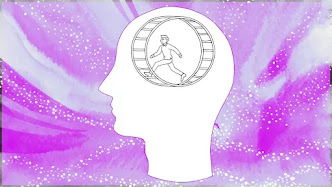Why Happiness Fades: Understanding Hedonic Adaptation
You’ve just bought that new phone you’ve been dreaming of, or maybe you’ve finally booked that long-awaited vacation. At first, you’re thrilled—your excitement is through the roof. But after a few weeks, that new phone feels, well… just like a regular phone. And the post-vacation glow? It fades, and you're back to your usual routine. Why does this happen? It’s called Hedonic Adaptation, and it’s one of the main reasons why happiness from external things doesn’t last as long as we expect.
What Is Hedonic Adaptation?
Hedonic adaptation, also known as the "happiness treadmill," refers to our natural tendency to return to a baseline level of happiness, no matter how good or bad things get in our lives. When something exciting happens—a promotion, buying a new car, or even falling in love—we experience a boost in happiness. But over time, we adjust to the new situation, and that happiness boost fades. This is why even after achieving something we once thought would make us forever happy, we end up feeling pretty much the same as we did before.
It works both ways: when bad things happen, like losing a job or going through a breakup, our sadness eventually diminishes, and we return to our emotional baseline. While hedonic adaptation helps us recover from negative experiences, it also limits how long we can bask in the glow of positive ones.
Why Does It Happen?
Humans are remarkably adaptable creatures. Evolutionarily, hedonic adaptation may have served us well by helping our ancestors stay focused on survival rather than getting too caught up in fleeting joys or downfalls. While that’s great for survival, it’s not so helpful in a world where we chase happiness through achievements, purchases, and experiences.
Psychologists suggest that when we experience something new or exciting, our brains treat it as novel, and this novelty generates happiness. But as we get used to that new car or job, it becomes part of our everyday life, and the novelty wears off. That’s when our happiness levels start to drop back to where they were before.
The Happiness Trap
The problem with hedonic adaptation is that many of us believe this next thing will finally make us happy. “If I just get that promotion, I’ll be happy,” or “Once I buy a bigger house, everything will be perfect.” But when these goals are reached, our happiness spikes for a short time before we settle back into our previous emotional state. This leads to a cycle of constantly seeking the next big thing in hopes of staying happy—a treadmill where we’re always running but never really getting anywhere.
How to Beat Hedonic Adaptation
While we can’t completely avoid hedonic adaptation (it’s part of being human), there are ways to minimize its effects and create more lasting happiness. Here are a few strategies:
Practice Gratitude: Regularly appreciating what you already have can slow down the adaptation process. Instead of taking things for granted, reminding yourself of why they’re meaningful can keep the good feelings around longer.
Focus on Experiences, Not Things: Research shows that experiences, like spending time with loved ones or learning something new, tend to bring more lasting happiness than material possessions. This is because experiences are often linked to personal growth, relationships, and memories, which don’t lose their value as quickly as physical items do.
Savor the Moment: Instead of quickly moving on to the next goal or purchase, take time to fully enjoy and savor the good things in your life. This can extend the positive feelings you get from new experiences.
Give Back: Helping others or engaging in acts of kindness has been shown to provide lasting happiness. When we contribute to the well-being of others, it creates a sense of purpose that stays with us far longer than any material reward.
Set Meaningful Goals: Rather than focusing on material success or external achievements, aim for goals that align with your values. Personal growth, building strong relationships, and contributing to something bigger than yourself can provide deeper, more enduring satisfaction.
Embrace the Ups and Downs
The key to dealing with hedonic adaptation is recognizing that happiness is fluid. It comes and goes, and that's okay. Instead of chasing permanent happiness through things or achievements, embracing life’s ups and downs can help you maintain a healthier and more realistic relationship with your emotions.
By understanding why happiness fades and how to navigate the adaptation process, you can stop running on the happiness treadmill and start finding more lasting joy in everyday life. Remember, true happiness often comes from within, not from the endless pursuit of external rewards.




Comments